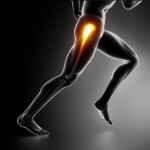3 ways ICD-10 will improve patient care [VIDEO]
Video Transcript:
Although most physicians and hospitals have become well-versed on all aspects of ICD-9, it was implemented back in 1979 and simply isn’t up-to-date with essential factors like new diseases.
Here are a few ways that the newer ICD-10 is predicted to help physicians with the overall quality of their patient care.
First is ICD-10’s enhanced specificity. ICD-9 was implemented during a time when surgical terms, such as endoscopic, weren’t used, or even heard of. Once ICD-10 codes are implemented, physicians will have access to more detailed coding that includes specific forms of common diseases like asthma.
ICD-10 will also prevent fraud. Currently, ICD-9 makes it too easy for hospital coders to get away with putting patients into a more severe disease or procedure category than they require. This is because codes can be too ambiguous and vague, making it easy for coders to pile together patients with the same disease but different needs.
With ICD-10, it’ll be more difficult for coders to push something that’s on the border of one code into a higher paying code.
The new codes will also work seamlessly with EHR systems. ICD-10 will help connect all of a practice’s health IT devices, ensuring that value-based purchasing metrics and meaningful use incentive programs use the same language as the EHR system.
Thanks for watching and tune in next time for more health IT news!



